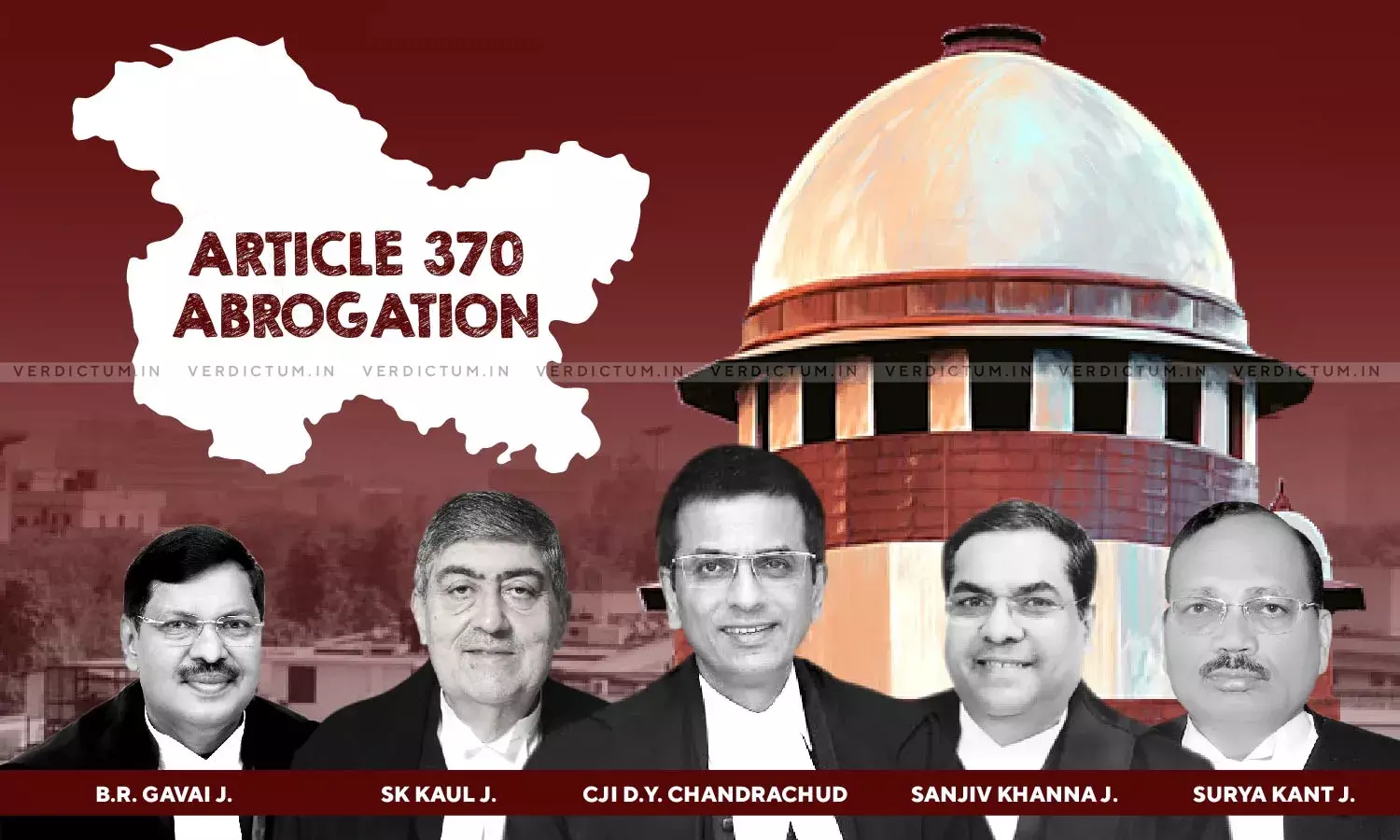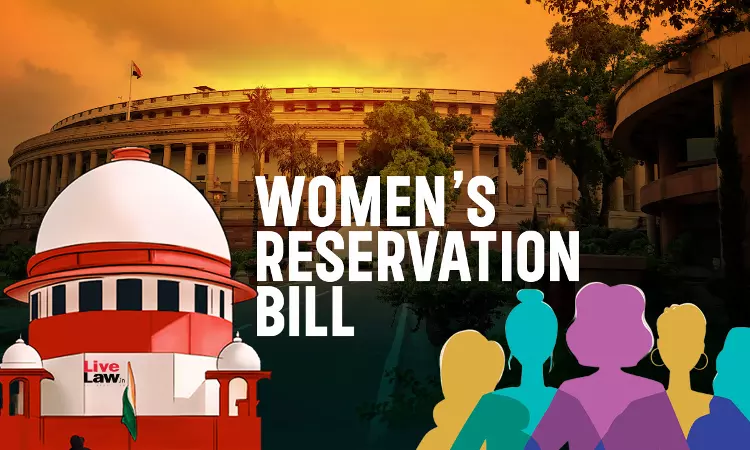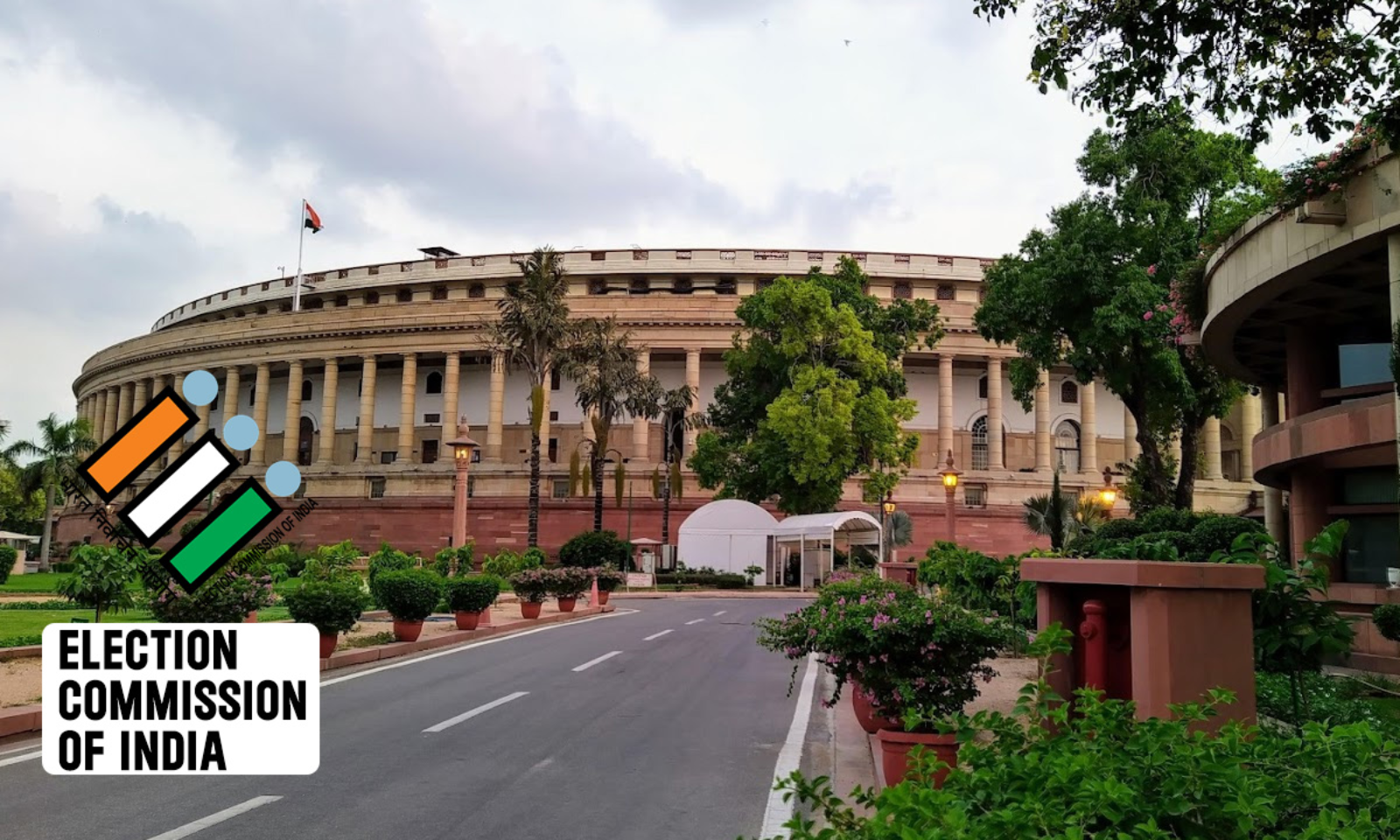ARTICLE 370

· The Supreme Court gave its decision on the Association government's 2019 move to alter Article 370 of the Constitution. The revocation had finished the exceptional status presented to the past province of Jammu and Kashmir. The court held the Protected request that disavowed Article 370 as legitimate.
What is the New Judgment of the supreme Court?
Jammu and Kashmir didn't Have Sway:
· SC saw that there is a lot of proof in Article 370 and the J&K Constitution to show that concerning Kashmir, a consolidation understanding was not important to give up its power.
· Article 370(1) applied Article 1 of the Constitution of India (where J&K was recorded as a Section III State) without any changes.
· Section 3 of the J&K Constitution unequivocally expresses that "the Territory of Jammu and Kashmir is and will be a fundamental piece of the Association of India."
· Segment 147 of the Indian constitution precluded any alterations to section 3, further making the arrangement outright.
· In this manner, Court said that the Constitution of India, "turned into the preeminent overseeing report of the land." Further, the Introduction to the J&K Constitution shows a "unmistakable shortfall of… a reference to power."
Article 370 is a Brief Arrangement:
· The SC depended on the way that the Constitution designers put Article 370 with the impermanent and momentary arrangements contained To some extent XXI.
· Then, it brought up that the Instrument of accession (IoA) made it "crystal clear" that Article 1 which expressed that "India that is Bharat will be an Association of States" applied completely to J&K.
· Protected Legitimacy of Announcements Subject to President's Authority:
· SC's Seat agreed that the President has the ability to make "irreversible changes, including the disintegration of the State Gathering," and that the President's powers are held under wraps by "legal and sacred investigation."
The Constitution of J&K Stands Out of commission:
· Court held that it is as of now excessive for the Constitution of J&K through which just certain arrangements of the Indian Constitution applied to J&K, to exist.
· The implied however fundamental result of the use of the Constitution of India completely to the Province of Jammu and Kashmir is that the Constitution of the State is broken.
Set up a Reality and Compromise Commission to Address Common freedoms:
· The SC suggested that the Association set up a "truth and compromise Commission" very much like South Africa presented politically-sanctioned racial segregation on explore common liberties infringement by both state and non-state entertainers. The activity ought to be time-bound.
What was the Unique Status of J&K?
About:
· On fifth August 2019, the Leader of India in the activity of the powers gave by Article 370(1) of the Constitution gave the Constitution (Application to Jammu and Kashmir) Request, 2019.
· Through this, the Public authority of India has made adjustments to Article 370 itself (not renounced it).
· With this, the Public authority of India has decisively adjusted the connection between the territory of Jammu and Kashmir and the Indian Association.
TRUTH COMMISSION

· In 2019, the Supreme Court unanimously upheld the Centre's abrogation of Article 370 and recommended the establishment of a Truth and Reconciliation Commission (TRC) to investigate alleged human rights violations in Jammu & Kashmir by both state and non-state actors.
What exactly is a TRC (Truth and Reconciliation Commission)?
About:
· An official mechanism for not only acknowledging but also disclosing wrongdoings committed by a government or, in some cases, non-state actors is referred to as a Truth and Reconciliation Commission, which is also referred to as a "truth and justice commission" or simply a "truth commission."
Objective:
· Reality commission is one that is centered around the past, as opposed to in continuous occasions.
· It investigates a sequence of events that occurred over time.
· The commission connects straightforwardly and extensively with the impacted populace, gathering data on their encounters;
· It is a temporary body whose goal is to produce a final report.
The state under review has given the commission official permission or authority.
Which Countries have Proactively Laid out TRC?
· The two most popular and most noteworthy commissions are viewed as set up in South Africa, Australia and Canada.
· Truth commissions have been established in Sri Lanka and Nepal in India's neighborhood.
· In 1995, President Nelson Mandela's first post-apartheid government in South Africa established a TRC to discover the truth about human rights abuses during apartheid.
· Article 370 The Indian constitution gave Jammu and Kashmir, a region that India, Pakistan, and China disagree with, special status.
· It was written by N Gopalaswami Ayyangar, who was a member of the Constituent Assembly of India. In 1949, it was added as a "temporary provision" to the constitution.
· With the exception of communications, defense, and foreign policy, it gave the state its own constitution and flag.
· It was based on the terms of Hari Singh, the ruler of Jammu and Kashmir, signing the Instrument of Accession in 1947 to join India after Pakistan invaded.
WOMEN’S QUOTA

· The Constitution (106th Amendment) Act of 2023, which provides 33% reservation for women in Parliament and State legislatures, was recently extended to the Union Territories of Puducherry and Jammu and Kashmir by two bills passed by the Lok Sabha.
· The Jammu and Kashmir Reorganisation (Second Amendment) Bill, 2023 and the Government of Union Territories (Amendment) Bill, 2023 were both introduced in the Lok Sabha by the Ministry of Home Affairs.
· In the legislative assemblies of Puducherry and Jammu and Kashmir, the two Bills aim to increase women's representation and participation as public representatives.
Reservations for women in the Puducherry Legislative Assembly must be established by Parliament by amending the Government of Union Territories Act of 1963.
ELECTION BILL

· The Rajya Sabha as of late endorsed the Central Political race Magistrate and Other Political decision Magistrates (Arrangement, States of Administration and Term of Office) Bill, 2023, which frames the strategies for naming the Main Political decision Chief (CEC) and Political decision Magistrates (EC).
· The regulation expects to carry straightforwardness to the arrangement cycle, answering a mandate from the High Court of India.
What are the Bill's Most Important Provisions?
· The Election Commission (Conditions of Service of Election Commissioners and Transaction of Business) Act of 1991 has been superseded by the Bill.
It discusses the CEC and ECs' appointment, pay, and removal.
Arrangement Cycle:
· On the basis of a Selection Committee's recommendation, the President will select the CEC and ECs.
· The Prime Minister, a minister from the Union Cabinet, and the Leader of Opposition and leader of the largest opposition party in the Lok Sabha will make up the Selection Committee.
· Suggestions of the Choice Panel will be legitimate in any event, when there is an opening in this Board of trustees.
· A group of names will be submitted to the Selection Committee by a Search Committee headed by the Cabinet Secretary.
· A position equivalent to Secretary to the central government must be held to be eligible for the positions.
Conditions and Salary Modifications:
· The compensation and states of administration of the CEC and ECs will be comparable to that of the Bureau Secretary.
· Under the 1991 Demonstration, it was comparable to the compensation of a Justice for the highest court.
Expulsion Interaction:
· The Bill holds the protected arrangement (Article 324(5)) that permits the CEC to be eliminated like a Justice for the nation's highest court, while ECs must be taken out on the suggestion of the CEC.
CEC and EC protection:
· Bill shields CEC and ECs from legal procedures connected with moves made during their residency, gave such activities were completed in the release of true obligations.
· The goal of the amendment was to keep these officials out of civil or criminal cases involving their official duties.
Currently, how are the CECs and ECs appointed?
Provisions of the Constitution:
· The Constitution's Part XV (Elections) contains just five Articles (324-329).
The Constitution doesn't set out a particular regulative cycle for the arrangement of the CEC and ECs.
· An Election Commission made up of "the Chief Election Commissioner and such number of other Election Commissioners, if any, as the President may from time to time fix" is given the "superintendence, direction, and control of elections" by Article 324 of the Constitution.
· The Union Council of Ministers, led by the Prime Minister, provides the President with advice before making the appointment.
· The Law Minister presents the Prime Minister with a list of potential candidates for consideration. The President makes the arrangement on the counsel of the PM.
Removal:
· They can resign at any time or be removed before their term ends.
· The CEC can be eliminated from office just through a course of evacuation like that of a SC judge by Parliament.
· Some other EC can't be eliminated besides on the proposal of CEC.
What are the objections to the bill?
Independence and transparency:
· In some cases, allowing the Selection Committee's recommendations to stand despite a vacancy could lead to a monopoly of members of the ruling party, compromising the committee's diversity and independence.
Shift from Legal Benchmark to Leader Control:
Comparing the compensation of the CEC and ECs with that of the Bureau Secretary, whose not set in stone by the chief, raises worries about potential government impact.
· This change may jeopardize the EC's financial independence, in contrast to the Supreme Court Judge's salary, which is established by an Act of Parliament.
Eligibility Restrictions for Civil Servants:
· Confining qualification to people who have stood firm on a footing comparable to the Secretary to the public authority might reject possibly qualified competitors, restricting the variety of foundations and mastery in the ECI.
Worries About Absence of Equality:
· While ECs can only be removed on the recommendation of the CEC, the Bill keeps the constitutional provision that allows the CEC to be removed in the same manner as a Supreme Court Judge.
· This absence of equality in expulsion cycles might bring up issues about reasonableness.
